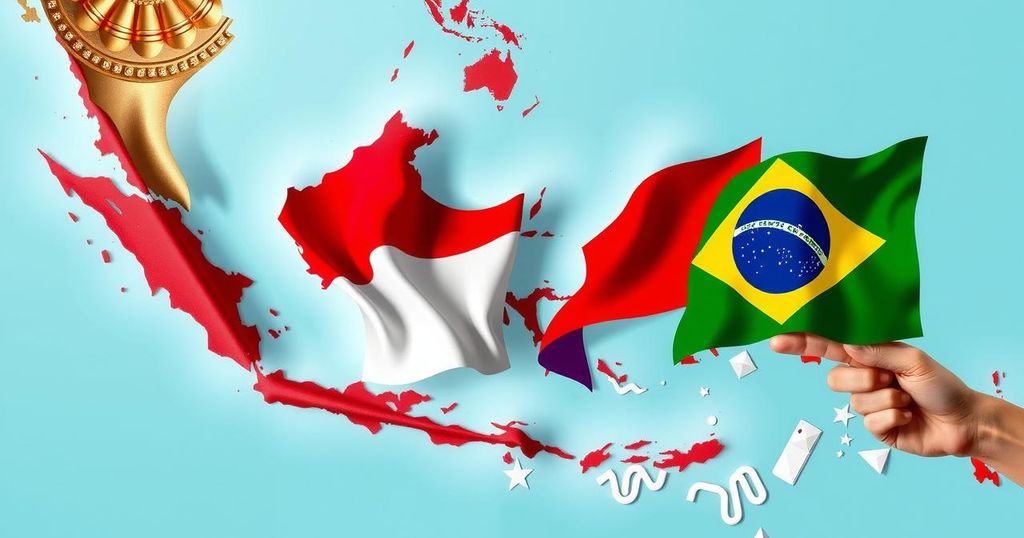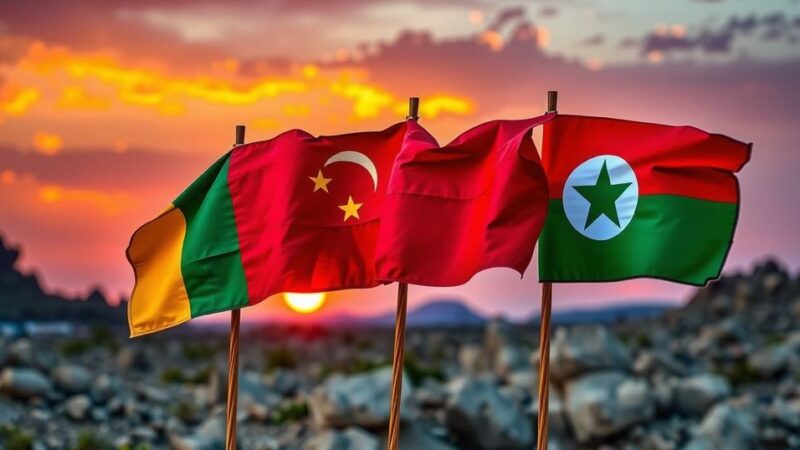Brazil has welcomed Indonesia as a new member of BRICS, highlighting its importance as Southeast Asia’s largest economy. The formal approval of Indonesia’s entry came after the establishment of its government, aligning with BRICS’ objectives to reform global governance. This expansion underlines the coalition’s commitment to enhancing cooperation among Global South nations and follows the previous inclusion of five new members in 2024.
The Brazilian government has officially announced the admission of Indonesia into the BRICS coalition, recognizing the significance of Indonesia as Southeast Asia’s foremost economy and its populous nature. This inclusion reflects a common goal among BRICS members to advocate for reforms in global governance and enhance cooperation among nations of the Global South. The Brazilian Foreign Ministry has articulated that Indonesia’s membership aligns with Brazil’s presidency theme focused on fostering inclusive and sustainable governance. Indonesia’s formal expression of interest in joining BRICS occurred after the establishment of its new government, with its membership being unanimously approved by the BRICS nations in 2024, according to established guidelines from the Johannesburg summit.
The BRIC alliance originated in 2006 following a meeting between the leaders of Brazil, Russia, India, and China, which subsequently evolved into BRICS with South Africa’s addition in 2010. The first BRIC summit took place in Yekaterinburg, Russia, in 2009, and since then, BRICS has witnessed several expansions, the most recent being in 2024, incorporating five new member states: Egypt, Ethiopia, Iran, Saudi Arabia, and the United Arab Emirates.
The topic of BRICS expansion is particularly relevant in the context of shifting global dynamics, where emerging economies seek a stronger voice in international governance. The inclusion of Indonesia as a member underlines the group’s commitment to advancing development and cooperation among Global South nations. Established with the objective of reshaping economic power dynamics, BRICS has historically represented a coalition of major developing countries aiming to provide an alternative to Western-dominated global financial institutions. With this expansion, BRICS continues to assert its influence on the world stage, particularly as the geopolitical landscape evolves.
In conclusion, Indonesia’s membership in BRICS signifies a strategic expansion that emphasizes the organization’s commitment to enhancing cooperation among emerging economies. This integration aligns with Brazil’s presidency goals of fostering inclusive governance and addressing the Reform of global institutions. The ongoing expansion of BRICS represents a crucial pivot towards fostering greater collaboration within the Global South, reflecting the changing paradigms of global economic governance.
Original Source: m.economictimes.com






